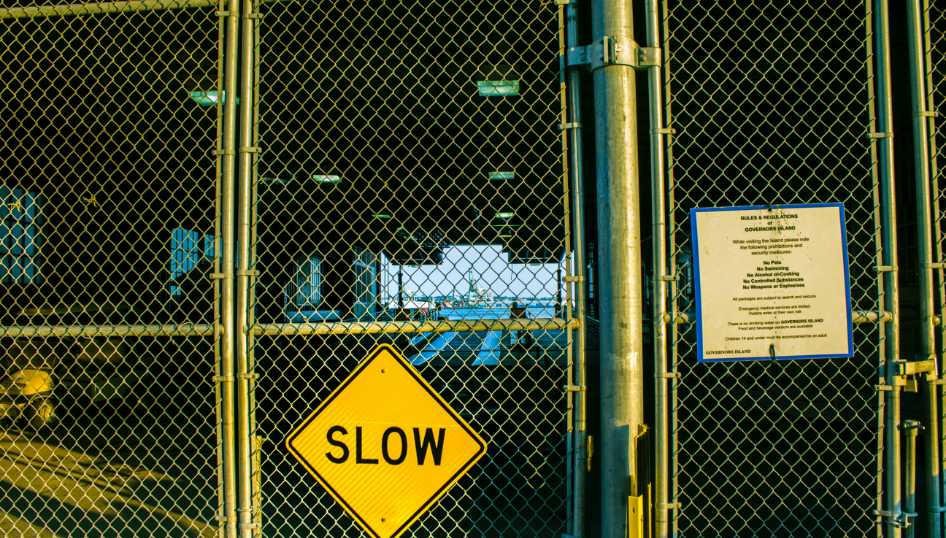Page Speed Optimisation Services for Accelerated Loading Times
Website Delivery That Delivers Results

Does Page Speed really matter?
- Page load time has a significant impact on on-site revenue, leads and traffic. In fact, benchmarks show that up to 47% of visitors will abandon your site if it takes more than 3 seconds to load!
- Page speed has been found to be the most important factor for online retail businesses in regards to increased conversion rates (79%).
- Crashes and errors play a role in 27% of surfers abandoning your website after just one page load.
- Studies show that slow response times cause searchers to lose interest. By reducing waiting time on search results pages, you can increase the click-through rate by an average of 22%. You can also add social media share buttons or other engagement widgets such as comments or ratings form at the end of your search result listings to encourage visitors to engage with your website before leaving.
- More than 50% of home page visits are abandoned if the first page takes more than four seconds to load on a broadband connection, and almost half will leave after three seconds or less on mobile sites. Similarly, web forms that take too long tend not to get filled out at all!
How Page Speed Affects SEO & Search Engine Rankings?
Website speed is one of Google’s ranking factors. Website performance that ranks higher than the competition’s website will always outperform them in Google search engine rankings.
Page Speed is also an under-valued SEO Tool for Conversion Rate Optimisation, Load Time Monitoring and Traffic Analysis.
The simple answer is that page speed does affect Google rankings.
Site speed is a direct ranking factor, a fact known even better since Google’s Algorithm Speed Update. However, speed can also affect SEO rankings indirectly, by increasing the bounce rate and reducing dwell time. In short, page speed does affect google search results.
For users, page speed matters because they load quickly and provide an improved experience on the page. Approximately 25 per cent of users will leave a page that takes longer than three seconds to load and is not user friendly
Table of Contents
ToggleWhat is page load speed?
You can measure how quickly the content on a page loads by measuring the Google pagespeed score. There are two different ways to describe page speed: “page load time” (the time it takes to fully display content on a webpage) and “time to first byte” (how long it takes the browser to receive the first byte of information from a server).
The speed of a page is the time it takes for a browser to request a page and render it once the browser finishes processing and rendering the content. Several factors influence a page’s speed, including its content, the distance the data must travel, the device, operating system and browser. Google PageSpeed Insights allows you to analyze your websites pagespeed insights.

What is the difference between website speed and page speed?

When you hear the term page speed, it is referring to the download speed of a given web page. When looking at page speed you focus on specific on-page attributes and optimise their performance so the page will load quickly.
Site speed optimisation refers to how quickly a website can be accessed by a user and also includes page load time. When you have website traffic your site speed determines load time. It begins at the time the page is rendered and continues to the conversion of a shopping cart form or lead form.
The purpose of website speed optimisation is to facilitate seamless navigation through the various funnels you define within your site and ensure that every page is rendered, pre-rendered and preloaded.
What is a good page speed?

A website page speed is measured by the loading time in seconds. A good load speed would be 0.5-3 seconds, but this will vary depending on several factors.
Some of the factors that influence your page speed are connection speed, DOM size, browser cache, server load and more.


Our Page Speed Optimisation services?

A slow-loading website can lead to a high bounce rate of organic traffic and a low conversion rate but Digital website design can help alleviate this.
Every one of our page speed optimization packages includes a range of services that can help your website load fast.
The following are some of the services we offer as part of our page speed optimisation services
WordPress speed optimization services on Your Existing Hosting
Browser Caching setup & optimization
Setting Up Page Caching & optimization
Our speed optimization service will optimize, tune, minify and combine CSS & Javascript (JS) in accordance with your theme
implementation of database optimization and scheduling maintenance
- 301 Redirect Optimization
- Website Backups before any optimisation is carried out
- HTACCESS File Optimization
- Theme Optimization As Far As Your Theme Supports
- Updating WordPress site Plugins, Themes and CMS
- Check and disable unwanted plugins
- Server Compression Tuning As Required
- PHP Upgrade
- CDN Setup & Implementation
- DNS Record Optimization & Tuning For Speed
- Our site speed optimization service will configure Lazy Loading of Images & Videos (if applicable to your theme)
- Compression and optimization of images
- Integrating WordPress site best practices
- Server migration or hosting migration
Steps to Getting Started

- From the list of page speed optimisation services above, select one and click enquire. Then complete the information requested.
- For a Bespoke speed optimisation service request you can Press the custom request button
- A free site audit of speed and performance will be performed, and we will provide advice on what to expect, as well as any recommendations.
- The work will begin after we have approved an action plan.
- Our team will fix your site’s speed issues and optimize it using our bspoke pagespeed optimizer tool, so that it runs as fast as possible
- You will receive a report on your site’s improvements, and we will offer recommendations that may help you to improve the performance of your site further. We will also suggest ways to keep your site optimized in the future!

How do you optimise for Page Speed?
Here are some of the many ways to increase your site speed:
-
Images should be optimised
-
Compress your file
-
Defer JavaScript loading
-
Minimise web languages
-
Set up browser caching
-
Use a CDN
Image optimization creates fast loading websites. Your images should not be larger than they need to be, contained in the right file format (PNG is better for graphics with fewer than 16 colours, while JPEG is better for photo files) and have been compressed for the web.
Design a CSS sprite for images that you use frequently on your sites, such as buttons and icons.
By using CSS sprites, you can combine all the images into one large image, load your CSS files all at once (which results in fewer HTTP requests) and display only the sections you want. Your site speed will significantly increase by avoiding making users wait while multiple images load.
If you have CSS, HTML, and JavaScript files larger than 150 bytes, you can compress them with Gzip, a program that compresses files. Image files should in programs such as Photoshop, where you can keep control over the quality.
When a file is DEFERRED, it isn't loaded until all other elements are loaded. Deferring larger files, such as JavaScript, will give your content a faster loading time.
By optimizing your code you can quickly increase the speed of your site by eliminating unnecessary code, such as spaces, commas, code comments, and formatting.
Browser caching involves elements of your website being temporarily cached on your hard drive whenever someone views your site. By doing this, your browser will not have to send another HTTP request to the server the next time your site loads.
A content distribution network is a way to store copies of your website pages in servers that are close to people who are accessing them. Thus, your website pages will load faster because your customers will have faster and more reliable access to them.

Check out our site speed optimisation plans
Business Speed Optimisation Service
- Our Business Speed Optimisation Service is perfect for new or existing websites that require a quick upgrade from slow to "fast enough" on a budget
- Report with Recommendations
- Cloudflare implementation
- Optimise Site Images
- Enable Caching
Advanced Speed Optimisation Service
- Our Advanced Speed Optimisation Service is best suited to businesses that want to optimise and pass Google's Core Web Vitals metrics.
- Includes Business Features
- Concatenate Javascript / CSS
- Minify Files
- Enable Site Compression
Enterprise Speed Optimisation Service
- Our Enterprise Speed Optimisation Service is perfect for businesses that want to optimize for Google’s Core Web Vitals metrics and go really fast
- Includes Advanced Features
- Database Cleanup
- Site Migration to a VPS server
- ECommerce Optimisation
“Digital Website Design built my company website and provided an excellent professional service. I was involved in each stage of the website build and was completely satisfied with the service they provided”
CEO: Kozana London
How much does website page speed optimisation services cost?
Many factors affect how much a page speed optimisation service costs. Pricing depends largely on
- What you want and what you’re willing to spend
- How many websites you need to optimise
- How many web pages on your site require website speed optimisation?
- Whether you have cheap hosting or fast hosting
- The level of support you receive from your host and CDN providers
- The timeframe for speed optimisation.
Other factors include what changes you want to be made to these pages such as Minify CSS files, JavaScript, and HTML
- Reduce redirects.
- Remove render-blocking JavaScript.
- Leverage browser caching.
- Improve server response time.
- Use a content distribution network.
- Optimise images.
- Lazy load images
How do I test my page speed?
A website’s site speed is measured by how quickly a page loads on a user’s screen. A site’s performance can be tested using various online tools such as google pagespeed insights tool. Online tools are not always accurate, but if you test your website on multiple amounts of tools they are likely to give you an idea of where your site speed stands.
There are a few rules to follow when testing a websites page speed such as:
- Be consistent with the speed test location you choose
- You can choose from different test locations all over the world with almost every speed test tool, and this is important.
The reason for this is that everything you see is based on the data centre where your website is located. Hence, a speed test should be performed both from a location that is nearby your data centre and one that is far away eg san Jose.
As a result, you will be able to identify the effectiveness of the CDN.
- Test Multiple Times
- Users tend to run a speed test just once, and when they do, the content may not be fully cached on the WordPress host or CDN yet, so it appears that the site is actually slower than it should be
- Stick with one tool
- Since each tool uses different metrics, you cannot compare results from one tool to another.
Why is my site so slow?
When you know the current state of your site speed, you can target key factors that affect a slow website.
Listed below are some common reasons for website load to be slow.
Your website is not using a content delivery network (CDN)
Content Delivery Networks (CDNs) have servers that are specifically positioned in strategic geographical positions across the globe. Users who are located far from your main server can quickly load your website pages in these servers by storing copies of them.
Bad HTML coding
You use HTML code to determine how a page should look when the user is looking at it on your website. A page is made up of a list of tags that tell it what to do. Every page of your site has its own markup.Your pages should load fast if you don’t use extra tags and make sure everything is correctly linked. Otherwise, the server will have to spend longer reading the code – resulting in a slow website.
Pages take longer to load because of rendering-blocking JavaScript
JavaScript provides websites with interactive functions. A website without this would be pretty boring. Despite this, JavaScript can delay the loading of your pages if you leave them unoptimized.
Huge graphics that are poorly optimized can lead to page delays
It is crucial to include graphics on your site to provide a great user experience but one of the biggest reasons for slow-loading pages is the use of large, high-resolution images.
Your plugins may be contributing to slowing down your website.
Too many plugins can cause your website speed to slow down. These plugins can have bloated js and css files which take a long time to load. It can also affect your caching plugin and can cause problems with your site’s performance.
Location and performance of servers
Distance between the server and your users’ computers is an important factor that affects the speed of your website. It’s also crucial to know whether your website is on dedicated fast hosting or cheap hosting.
Choose Digital Website Design for your page speed needs
Our google page speed optimizer experts will use their years of experience in site speed optimisation to assist you in speeding up your website. The goal will be to improve your site’s loading time, as well as to improve your score using GTMetrix and other speed measuring tools.
By optimising images, enabling caching, optimising files, and enabling compression, we can improve users’ experience and increase conversion rates.
We are a company that has a history of success and can help your company achieve results.






